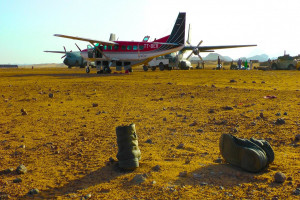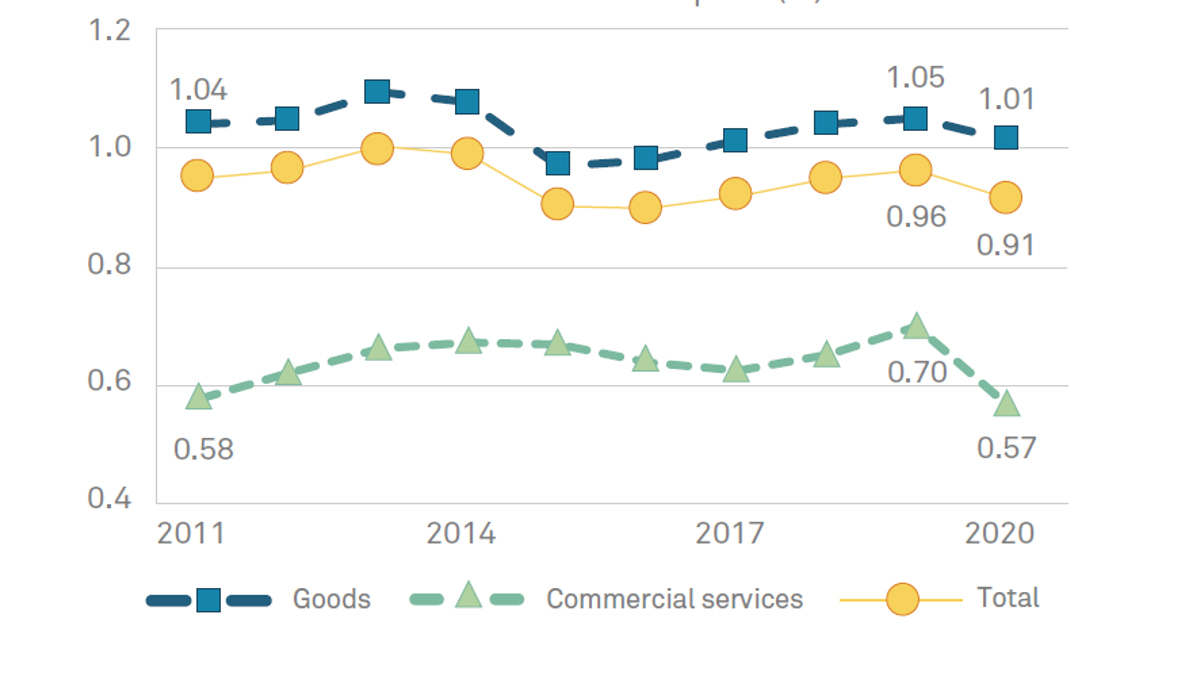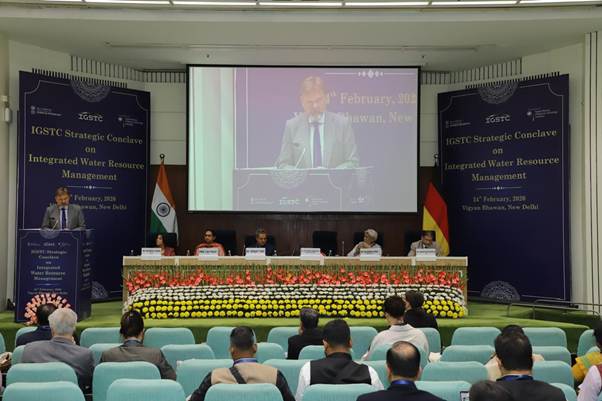
Geneva: The COVID-19 pandemic caused a 35 per cent decline in least-developed countries’ (LDC) services exports and a 12 per cent decline in their exports of goods in 2020. LDC exports of goods and commercial services declined more sharply than the world average, falling from a 0.96 per cent world share in 2019 to 0.91 per cent in 2020.
Taking note of the sharp decline LDCs’ participation in world trade since the outbreak of the COVID-19 pandemic at a meeting of the World Trade Organization’s sub-committee on LDCs on February 16, 2022, the chair, Ambassador Kirsti Kauppi (Finland), underlined the need for the international community to work together to promote trade opportunities in LDCs. The next meeting will be scheduled for the end of May.
 The target of the Istanbul Programme of Action of doubling the LDCs’ share in global exports by 2020 has also not been met and the pandemic has reversed the economic progress achieved during the previous ten years.
The target of the Istanbul Programme of Action of doubling the LDCs’ share in global exports by 2020 has also not been met and the pandemic has reversed the economic progress achieved during the previous ten years.
Speaking on behalf of the WTO’s LDC Group, Chad expressed concerns over LDCs’ dwindling share in world trade, and called on development partners to provide support to help LDCs recover from the pandemic and build resilient economies.
Several LDCs called on WTO members to reinforce the use of WTO tools to strengthen LDCs’ role in global trade, including reinforcing steps to facilitate market access for their goods and services, and addressing non-tariff barriers, including sanitary and phytosanitary measures and rules of origin. LDCs also called on members to ensure that they can continue to meet their trade and development objectives after they graduate from LDC status.
Several WTO members updated the Committee on work to improve LDCs’ integration into the world trading system, including through preference programmes, aid for trade assistance and targeted capacity-building initiatives.
Highlighting the need to further invest in digital infrastructure in LDCs, the World Bank outlined its projects on digital infrastructure, digital trade governance and digital payments. The World Bank also pointed to the Bali Fintech Agenda, which lists 12 policy recommendations to help developing countries tap into the benefits that financial technology can bring to banking services. The LDCs stressed that assistance in addressing digital shortfalls – regarding broadband connectivity, digital trade platforms and e‑commerce strategies, for example – would help them further integrate into global trade. They also requested support on data protection and cybersecurity.
The WTO’s Institute for Training and Technical Cooperation, which designs, coordinates and implements trade-related technical assistance activities, encouraged LDCs to continue their requests for technical assistance activities and reported that 80 national, regional and global capacity-building activities for developing countries were carried out in 2021. LDCs accounted for 30 per cent of e‑learning courses in 2021. The objective was to ensure that trade-related technical assistance continued to be available to government officials from WTO members and observers despite the pandemic. The LDCs underlined the importance of WTO technical assistance to effectively participate in the multilateral trading system and stressed that lack of internet access and availability of electricity continue to hinder their ability to fully benefit from virtual activities.
– global bihari bureau





